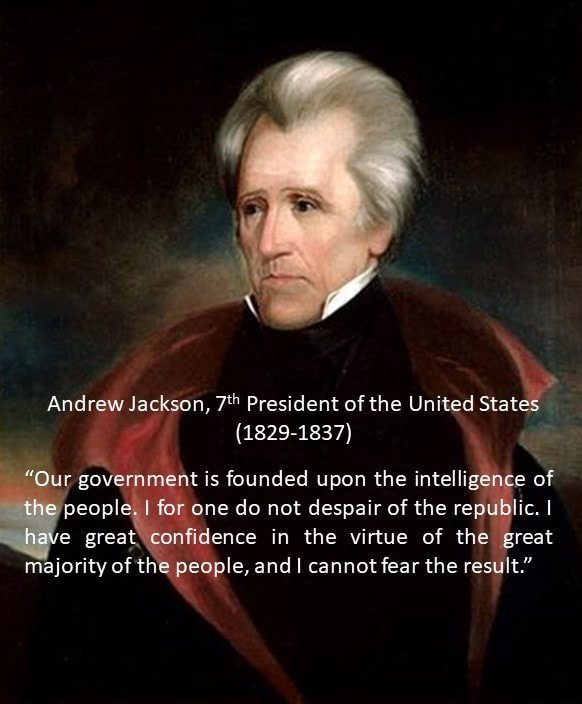|
Andrew Jackson was a populist--a successful frontier lawyer and military leader who defeated incumbent John Quincy Adams in the election of 1828 by a landslide. In the previous election of 1824, Jackson received more popular votes and more electoral votes than any other candidate, but no candidate received the required majority of electoral college votes. Under the procedures outlined in the Twelfth Amendment to the Constitution, the House of Representatives decided the outcome of the election by holding a vote among the top three candidates. The House elected John Quincy Adams in 1824. The election of 1824 was therefore the first election where the winner did not receive the most votes in the popular election. The outcome of this election led to the creation of the modern Democratic party for the election of 1828, with Jackson as its candidate. As President, Jackson vetoed the re-charter of the Federal Bank and was the only President to have completely paid off the federal debt. However, the political crisis over the removal of federal deposits to a number of "pet banks" in the various states created a lot of turmoil and speculation, resulting in the Panic of 1837. His Indian Removal policies led to the death of many Native Americans as they were forcibly moved to Indian Territories. Jackson also has the dubious distinction of being the first President that was the victim of an assassination attempt.
1 Comment
|
AuthorAuthor of Thy King Dumb Come and Accountability Citizenship, Stephen P. Tryon is a businessman and technologist with extensive experience in e-commerce, a retired Soldier, and former Senate Fellow. Archives
January 2024
Categories |


 RSS Feed
RSS Feed
